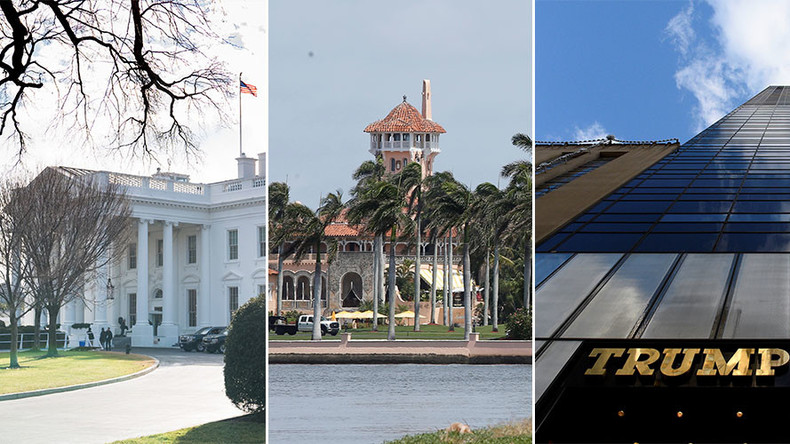
Three groups are suing the Trump administration for failing to respond to a Freedom of Information Act (FOIA) request to release records concerning White House visitors and Trump’s residences in Florida and New York.
The lawsuit, Doyle v. US Department of Homeland Security, was filed in federal district court in New York on Monday by a coalition of three groups: Citizens for Responsibility and Ethics in Washington, the Knight First Amendment Institute at Columbia University, and the National Security Archive.
The plaintiffs argue that the Department of Homeland Security violated FOIA “by refusing to search for and provide plaintiffs…with the request records” and not complying with the statutory time limit of their request.
In its FOIA request, the coalition said that it was wanted the information to inform the public of actual or alleged activities of federal government, as it considers those records “a matter of widespread and exceptional media interest in which there exist possible questions about the government’s integrity which affect public confidence.”
“It is crucial to understand who is potentially influencing the decision-making of the president, particularly when you have a White House that tends to lean toward secret decision-making,” Noah Bookbinder, executive director of the Citizens for Responsibility and Ethics in Washington (CREW), told The Washington Post.
The FOIA was filed in late January, on the Monday following Trump’s inauguration.
“We filed our first FOIA request for these logs on the Monday after the inauguration requesting information about a Mexican delegation that visited Obama,” said the National Security Archive’s Kate Doyle, arguing “when foreign officials go to see the President or his staff, the American people have a right to know who and when.”
On March 6, eight senators also sent letters to Trump and the head of the US Secret Service complaining about the absence of visitor logs, stressing that they provide the American public with insight into who is lobbying the Trump administration.
The letter also asked whether the records systems used to track visitors at the White House complex are also being used at Mar-a-Lago in Florida or being considered for the Trump Tower, Bedminister, and other Trump properties where he may conduct official business.
Neither Trump nor Secret Service Deputy Director William Callahan responded to the letters.
Since Trump took office, the White House’s visitors log web page has remained dark, with a notice saying that information on White House visitors will be posted “on an ongoing basis, once they [the records] become available.”
The administration has also refused to say whether it will continue to provide public access to the visitor logs.
White House visitor logs were first made available by the Obama administration in 2009 after a district court ruled in favor of four separate lawsuits filed by CREW over FOIA requests.
Every month, the Obama administration voluntarily posted online the name of the visitors, as well as the dates and times they entered and left the White House compound.
“President [Barack] Obama routinely released the data we’re seeking with no damage to presidential privilege, and this information is central to the Secret Service mission and thus clearly agency records subject to FOIA,” National Security Archive Director Tom Blanton according to statement.
There were several exceptions that included the names of personals guests of the Obama family, the need to protect national security, and the need to protect particularly sensitive meetings, such as the vetting of Supreme Court candidates.
Explaining the policy, Obama said that “Americans have a right to know whose voices are being heard in the policymaking process.” Under his administration, 5.99 million records of White House visitors were released, according to the complaint.
The lawsuit is seeking the release of the records and documents money to compensate the plaintiffs for their costs and attorneys’ fees.

